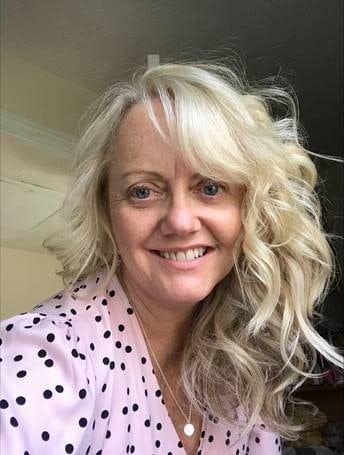We interviewed Shari Fitz-Patrick, Scrum Master at Fruugo on her experience and thoughts on women in tech.

1. What does your job involve?
I’m currently Scrum Master at ecomm marketplace Fruugo, where I help our software and engineering team provide our customers with the greatest experience possible. The Fruugo ecommerce platform serves consumers in 42 countries, so a huge part of my job involves helping our data science team effectively and efficiently build actionable intelligence for sellers our platform. I also look after software delivery projects that help automate our operations across all the regions we sell in, including a recent cloud migration project – it’s my job to ensure all our developers are on track and to troubleshoot any roadblocks.
2. What made you choose a career in technology?
When I left school I wanted to be an airline hostess. However, back when I was 17 there were no laws about discriminating against people of a certain height and as I was only 5’2”, wasn’t able to work in that field so I had to rethink what to do! My first job was actually as a Junior Typist, but I’ve always had an affinity for computers and software, so when given the opportunity to work on accounting software, it piqued my interest and I decided that I wanted to learn more about technology. At the time, I had no idea what was ahead of me in terms of male dominance, lack of equal pay, and most importantly having to deal with inappropriate male behaviour. However, I really enjoyed learning in this field, which luckily, is one way to show that I was serious about being in this industry.
3. Did you study an IT or technology related subject at GCSE, A-Level or University?
I gained a Bachelor’s Degree in Computer Science back in 1995, and I went for a Masters Degree in 2016 after getting feedback that my first degree was ‘too old’!
4. Did you get any work experience in IT or technology before this job?
I started my IT career in the US at Janssen Pharmaceutica as an IT helpdesk consultant, and most recently was a software delivery manager at Black Pepper Software. In between, I decided to be a stay-at-home mom, and even had a tea retail business – before returning to the UK several years ago, in my current position as Scrum Master at Fruugo.
5. Do you think there is a lack of females in the IT and tech sector?
While there is still a distinct lack of women in the tech sector, I’m encouraged to see the tide is turning is there is a real drive to change this. For example, we have actively been looking at hiring more women and recently hired a female scrum master – which is significant, as only 30% of all scrum masters are women!
6. Do you find there is a stereotype that a career in IT or technology is just for men?
I have found it’s less about stereotypes, and more about whether the industry feels inclusive and welcoming enough for women. In my 25 years in IT, I have unfortunately met more than a few men who believe that women should not work in this industry – especially in the engineering field. I’m seeing change, but it’s important that women receive the same respect as men in the workplace – from both individuals, and at an organisational level, if we want to truly overturn this stereotype.
7. What would entice women to study technology related courses?
A key aspect of attracting women to study technology would be for them to know that after the courses, they would have an equal chance of getting positions in the technology industry, that the reimbursement would be on a par with their male counterparts – it’s unacceptable to do the same job with less pay – and that they would be treated as an equal in the workplace. Organisations therefore have a role to play in making an attractive environment for women to join post-study.
8. Are there barriers when it comes to women getting into tech?
There are still barriers for women and other minorities getting into tech, but organisations are starting to step up to make entry easier.
Here at Fruugo, for example, we ensure that while recruiting for technology and software development roles should be about the application of skill and intellect regardless of gender, companies that work hard to foster a positive, supportive working environment where each person can be an individual while contributing to the work of their team will attract and retain more diverse talent as they progress through their careers.
9. How could we encourage more women to start a career in tech?
Governments and companies can put incentives in place for girls who are looking at technology as a career, and invest in nurturing them to feel confident and comfortable in pursuing the areas of technology they are good at and enjoy.
Organisations are beginning to make the workforce more attractive for women. For example, companies like Fruugo that allow working remotely and flexibly are able to provide careers for a wider range of people working in technology, so those that would find rigid office work or a commute difficult to accommodate with their other commitments can work in the industry.
10. What advice would you give to young women at the start of their career?
Learn as much as you can and never feel that you are asking a stupid question. There are no stupid questions when it comes to technology. That’s how you learn!
While we do all have to persevere and put in the hard work, it’s important to figure out what it is you really like doing. If you really enjoy what you are doing, you will naturally want to learn more and that builds confidence. Confidence is what is required when you are a minority.






